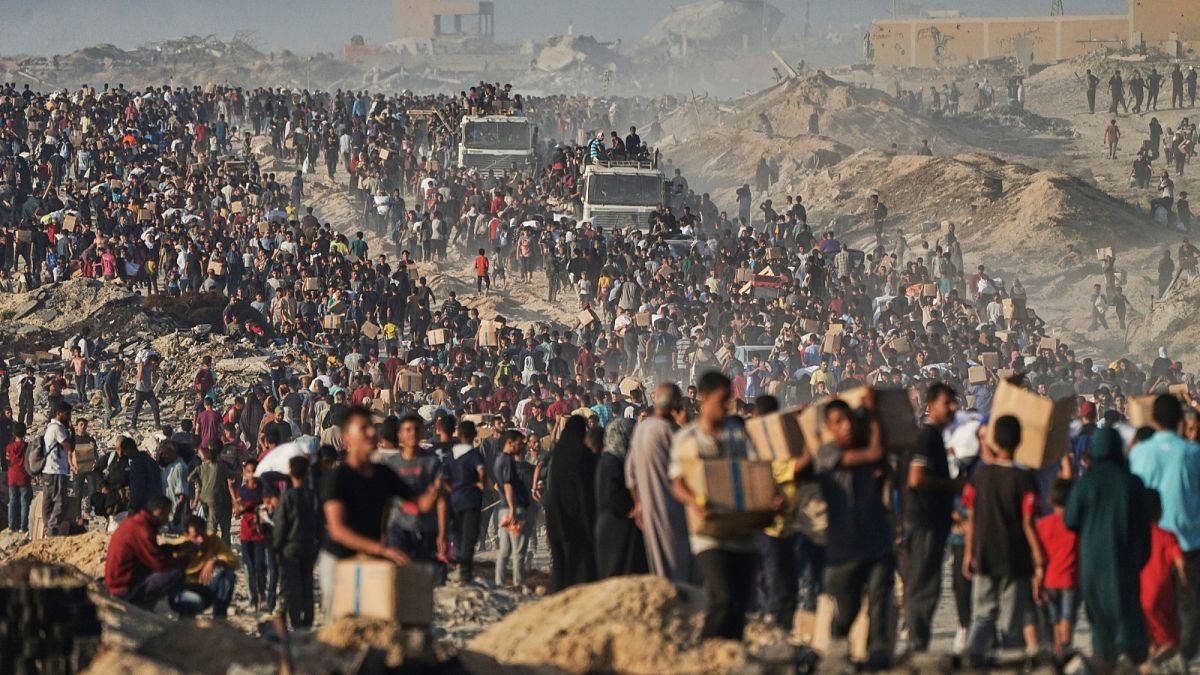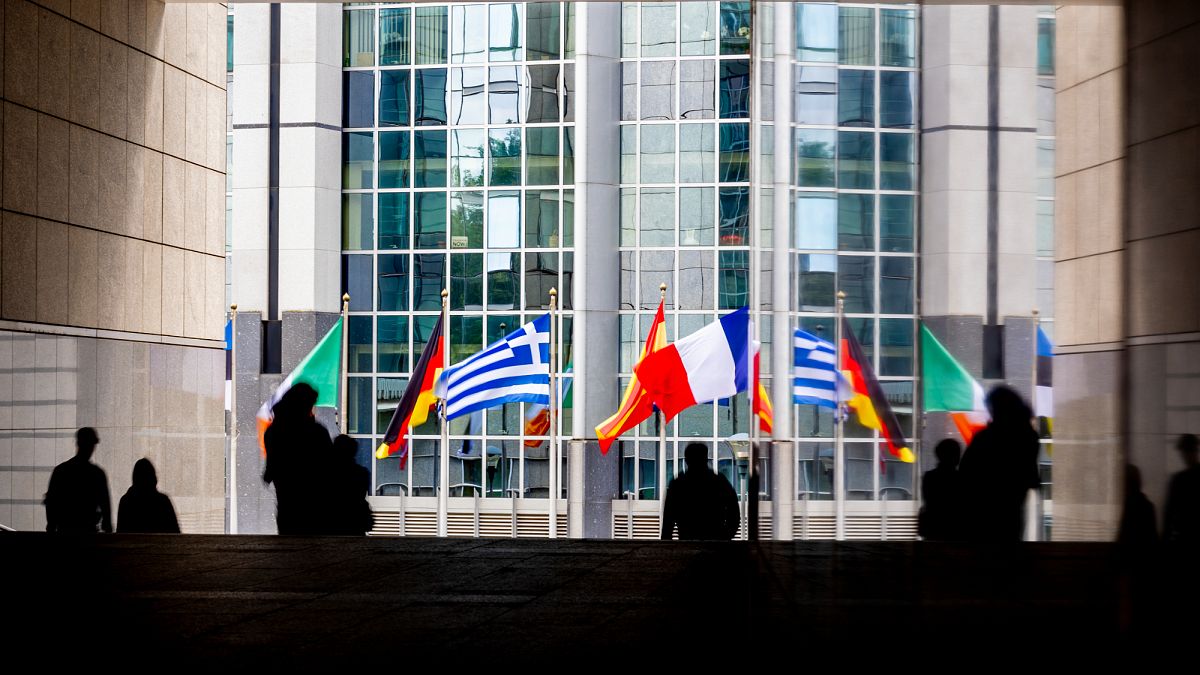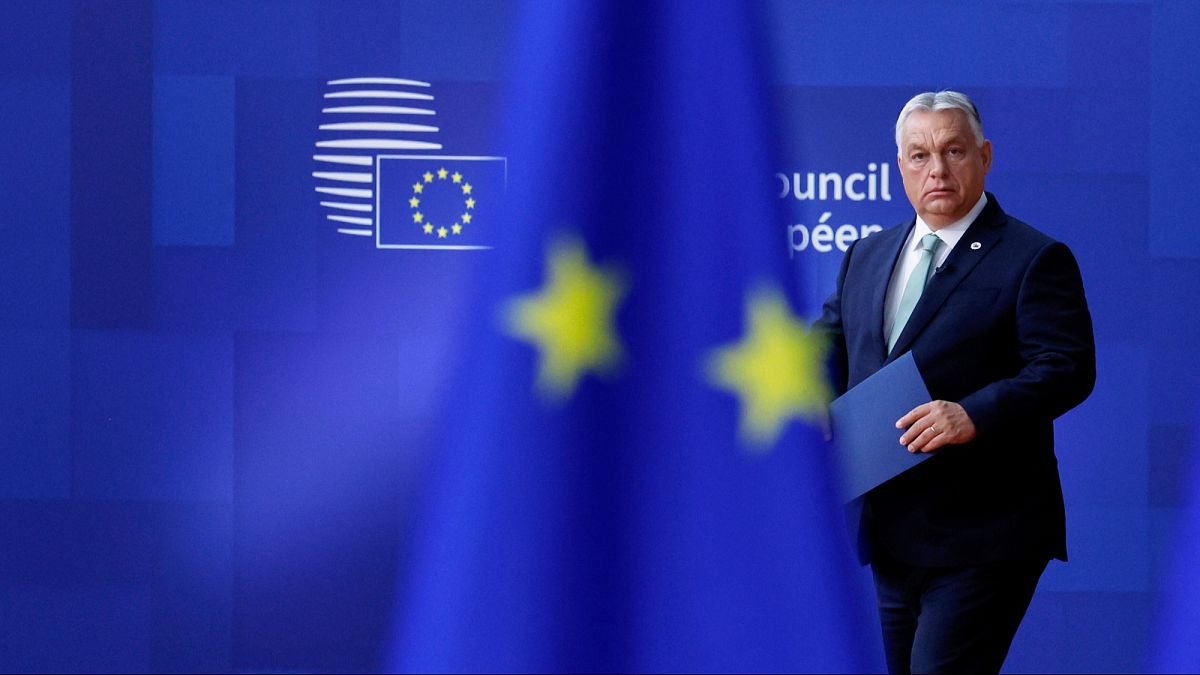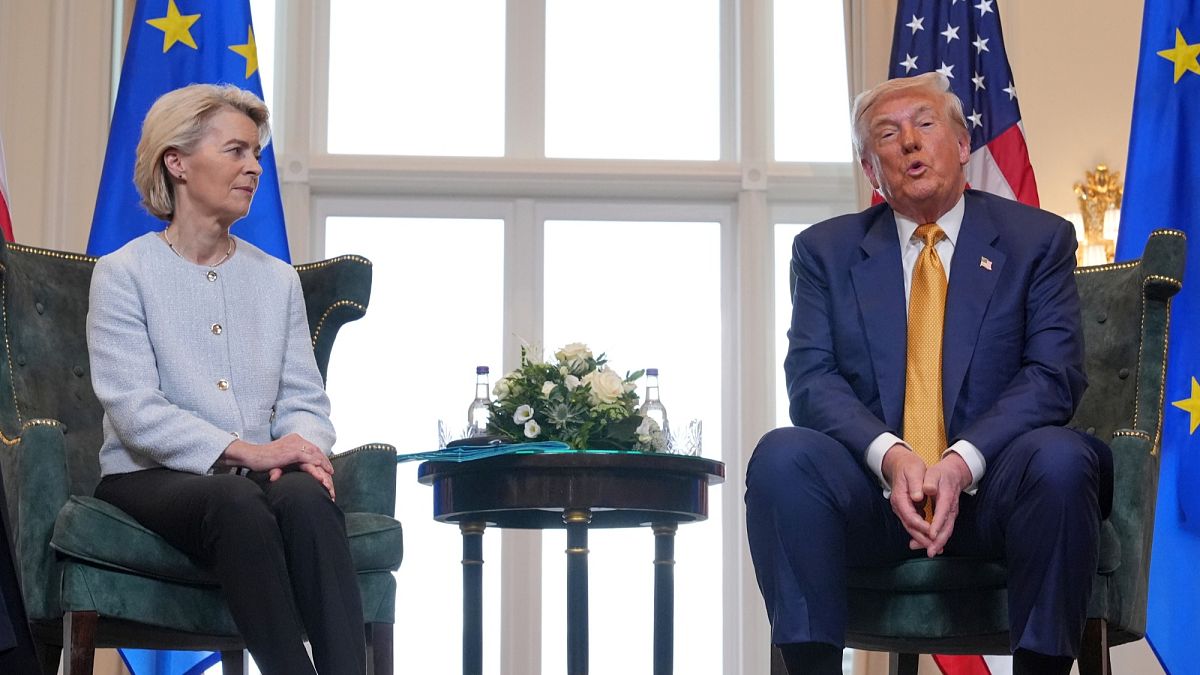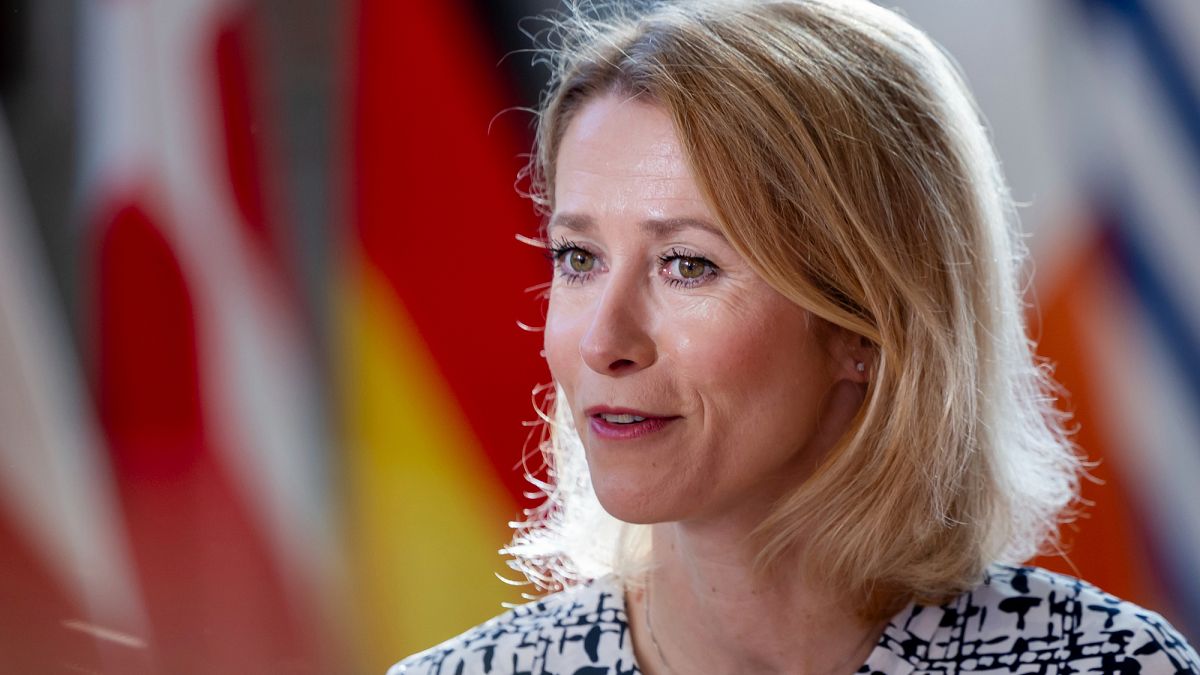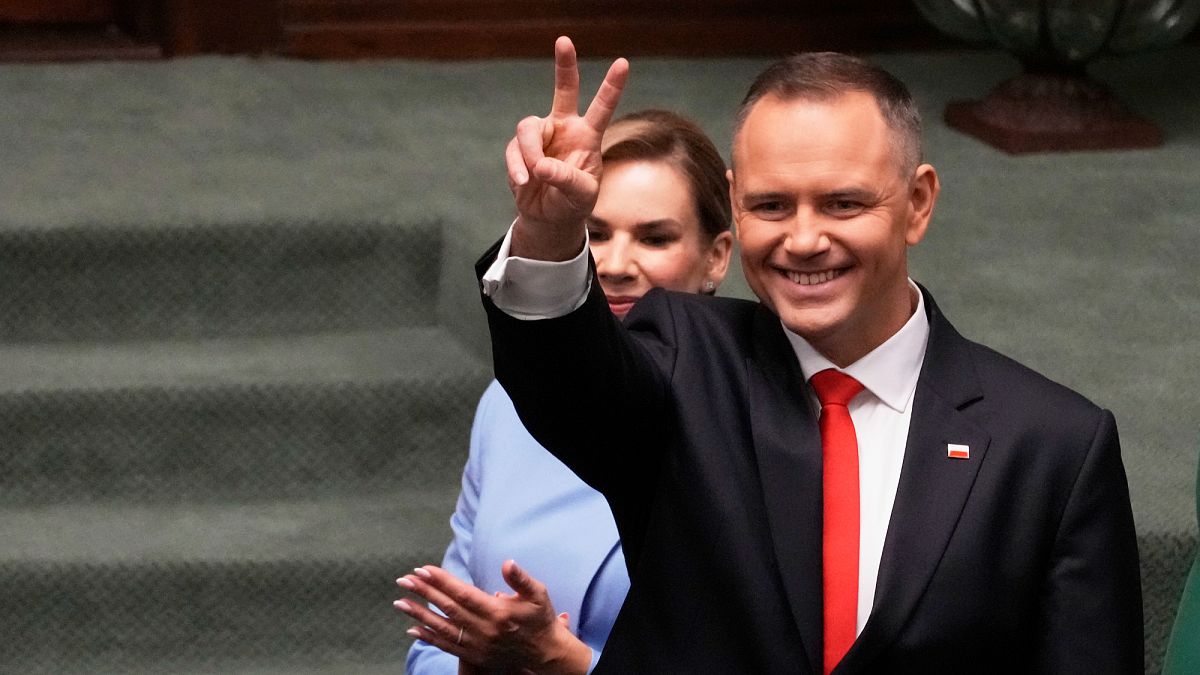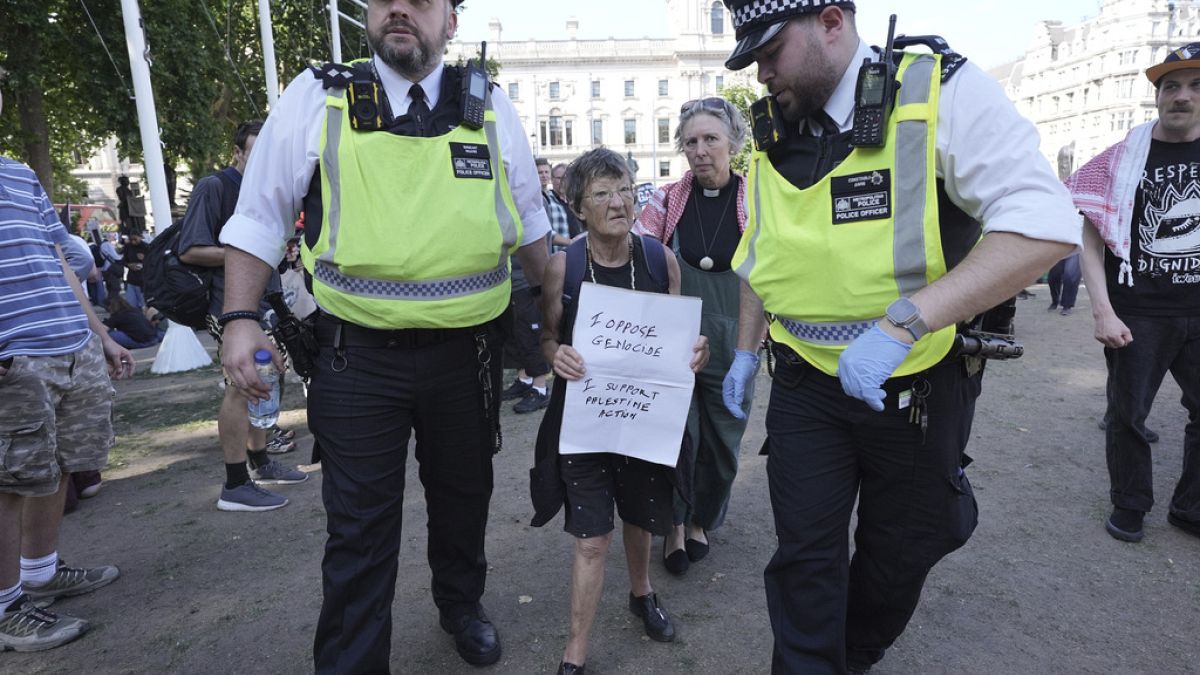Israel’s actions in the Gaza Strip indicate a breach of the human rights provisions contained in its Association Agreement with the European Union, a highly anticipated review from the bloc’s diplomatic service has found, citing a collection of findings by independent international organisations.
The breach stems from Israel’s war on Gaza and the stringent conditions applied to the deliveries of humanitarian aid, which have stoked fears of widespread famine among Palestinians living in the densely populated enclave. It also covers Israel’s decades-long occupation of the West Bank, where settlers have engaged in violent acts.
Europeans have reacted with shock and fury at reports of Palestinians being killed by the Israeli army while waiting for supplies at distribution sites.
The review was conducted by the European External Action Service (EEAS) and sent to member states on Friday under a restrictive format to avoid leaks.
“There are indications that Israel would be in breach of its human rights obligations under Article 2 of the EU-Israel Association Agreement,” a senior diplomat told Euronews, quoting the conclusions contained in the document.
According to the diplomat, the review speaks about the blockade of humanitarian assistance, military strikes against hospitals, the forced displacement of the Palestinian population, mass arrests, arbitrary detentions, the expansion of settlements, which are illegal under international law, in the Occupied Territories, and the violence committed by settlers. The violations are described as numerous and serious.
The internal exercise was launched last month at the request of 17 countries, led by the Netherlands, to determine whether Israel was still complying with Article 2 of the Association Agreement, which states bilateral relations “shall be based on respect for human rights and democratic principles, which guides their internal and international policy and constitutes an essential element of this agreement”.
Belgium, Denmark, Estonia, Finland, France, Ireland, Luxembourg, Malta, Poland, Portugal, Romania, Slovakia, Slovenia, Spain and Sweden backed the Dutch call.
Bulgaria, Croatia, Cyprus, the Czech Republic, Germany, Greece, Hungary, Italy and Lithuania were against, and Latvia adopted a “neutral” position, sources said then.
Israel decried the decision and called on Brussels to keep bilateral dialogue going.
“We completely reject the direction taken in the statement, which reflects a total misunderstanding of the complex reality Israel is facing,” a spokesperson of Israel’s foreign ministry said in May. “This war was forced upon Israel by Hamas, and Hamas is the one responsible for its continuation.”
The outcome of the review will be discussed by ambassadors on Friday and Sunday and later by foreign ministers on Monday. High Representative Kaja Kallas will personally brief EU leaders during a summit in Brussels on Thursday.
Kallas, who walks a fine line to keep all countries on the same page, has recently hardened her tone towards Israel and what she calls “weaponisation” of humanitarian aid.
“It is very painful for me to see the suffering,” Kallas said earlier this week.
“When I’m hearing that 50 people have been killed in the line for getting flour, it is painful, of course, I ask myself, what more can we do?”
It will be up to member states to decide what course of action, if any, the EU should take in response to the critical findings. Possible options include the complete suspension of the agreement, which is highly unlikely, or the partial suspension of certain provisions related to free trade, research, technology, culture, and political dialogue.
Some options will require the unanimous support of all 27 member states, while others will require a qualified majority, meaning at least 55% of countries representing at least 65% of the bloc’s population. Any decision to suspend the trade aspects of the agreement will be in the hands of the European Commission, and diplomats say that here too, an agreement will be difficult to reach.
No action until July
Given the short timing between the release of the review and Monday’s meeting, concrete action is not expected to be taken until foreign ministers meet again in July.
A senior diplomat said it was “difficult” to predict whether the 17-strong group will remain united on the next steps, but hoped the findings would help “increase pressure” on Israel to alleviate the human suffering inside the war-torn strip.
“There are three important points that we want to see,” the diplomat explained, speaking on condition of anonymity.
“First, a full and immediate end to the humanitarian blockade. Second, meaningful steps towards a ceasefire that enable the release of all hostages. And third, we would like to see that no more steps are taken to make the two-state solution more difficult.”
The review coincides with the military escalation between Israel and Iran, which will also be high on the agenda when foreign ministers meet on Monday. It remains to be seen how the discussion on Iran will influence the deliberations on Gaza.
A diplomat from another country said it was “critical” to keep the political attention on Gaza rather than “looking somewhere else”, meaning Iran.
“If the report goes as far as we imagine, how many member states will still be willing not to do anything and keep on saying that it’s business as usual?” the diplomat said. “Those member states will have to justify their inaction.”
But the sense of urgency is not equally shared. Several capitals insist the EU should focus on keeping open lines with Tel Aviv instead of cutting them off.
“For us, what is important is to keep a decent level of communication with Israel. We want to keep the Association Agreement as it is,” a third diplomat said. “For many of us, trade with Israel is important, and we don’t want to shut the doors.”
A fourth diplomat noted: “We’re away the humanitarian situation is very bad (but) it won’t stop being dramatic even if we do suspend the agreement.”
The review comes a day after Belgium, together with Finland, Ireland, Luxembourg, Poland, Portugal, Slovenia, Spain and Sweden, asked the European Commission to examine “how trade in goods and services linked to illegal settlements in the Occupied Palestinian Territory can be brought into line with international law”.



